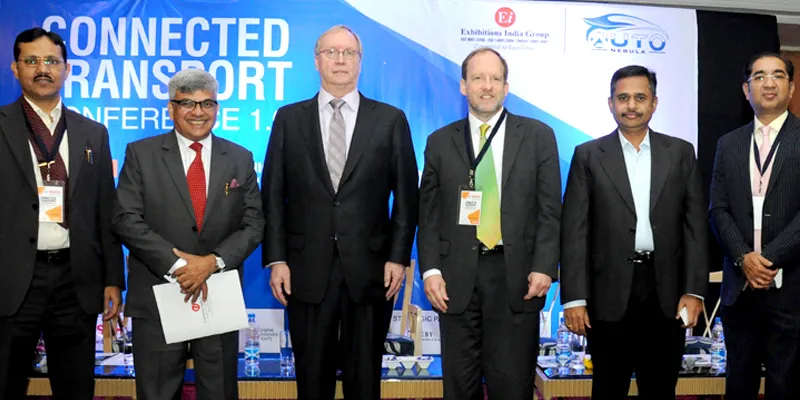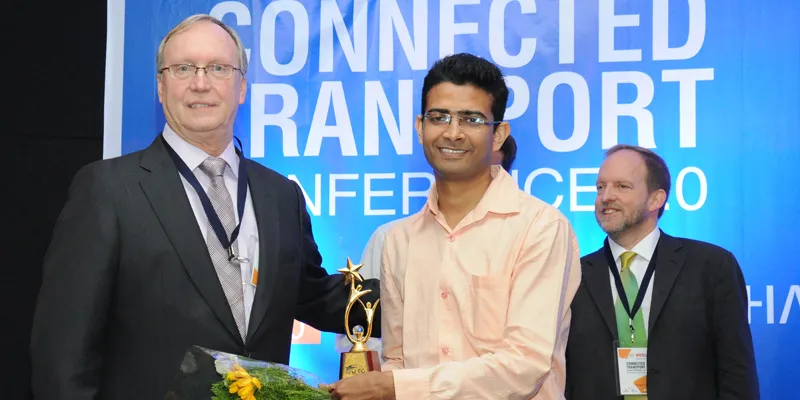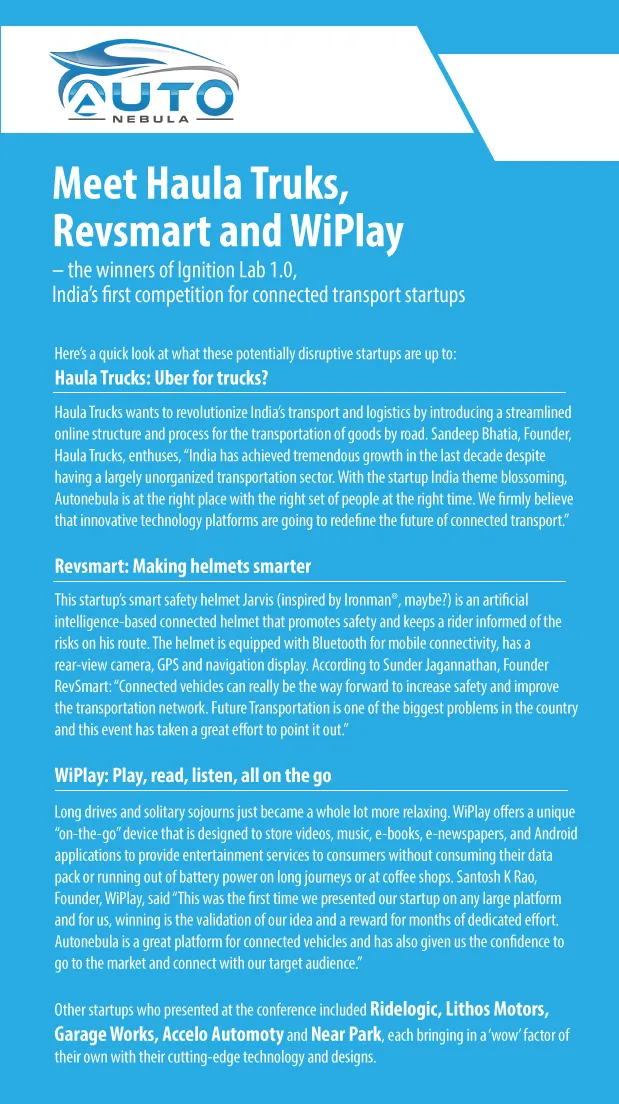Autonebula flags off incubation support for connected transport startups
This article is sponsored by Autonebula.
“If vehicles could communicate with other vehicles…there would be no accidents or deaths.”
That statement by Scott McCormick (President of the Connected Vehicle Trade Association of the US) set the tone for what Autonebula’s Connected Transport Conference 1.0 had set out to achieve.
For Sanjay Puri, founder of Autonebula, holding this first-of-its-kind conference was about creating an impact in India’s rapidly growing connected transport sector. As stated in an earlier report, given the severe challenges that India faces in the area of transportation which go beyond the hassles and dangers of urban commute and create significant supply chain inefficiencies, Connected Transport systems are something we needed yesterday.
The conference, therefore, aimed to bring together key stakeholders and give the fledgling industry a fillip by creating awareness about emerging trends, fostering debate on policy, and providing access to services as incubation, seed funding, mentorship and networking opportunities. Experts who spoke at the event (held in Pune on 28-29 January) highlighted several important areas where there was a lot of work to be done.

In a keynote address, Kamal Bali, MD of Volvo Buses India, focused on questions related to public transportation: Do we need more cars on the road or more buses to solve the challenges of traffic congestion, pedestrian deaths, pollution, and accidents? He answered by quoting Gustavo Petro, economist and former mayor of Bogota, Colombia, “A developed country is not a place where the poor have cars. It's where the rich use public transportation.”
Ashok Chandak, Senior Director, NXP Semiconductors, leveraged his expertise in semiconductors and security systems to make the case for a planned and secure connected transport system. He cautioned that the challenges of data privacy and the need for regular system upgrades made the systems vulnerable, which meant that these issues had to be addressed in advance of building a next-level vehicle.
Sundara Ramalinga Nagalingam, Head of Manufacturing, NVIDIA, talked about the revolutionary- software defined car, and about the complete digitisation of everything inside a car. He said that while a driverless car may be the next level, it remained to be seen how safe it was and emphasised the need for Big Data and ensuring accuracy before all else.
Discussion, debate around policies and backing
Panel discussions at the conference addressed topics such as how disruptive the evolution of the connected transport ecosystem was for stakeholders such car dealers, insurance providers, used car sellers and journey influencers. The panel – featuring a mix of international and Indian experts – highlighted how this coming of age for connected transport is also a new revenue source for mobile platforms. While comparing the American and the Indian ecosystems, the panel felt the challenges were unique to each region, but the need for a change in India was at the basic level of regulations and policy, an area where developed countries had already made a lot of progress.
The panel also discussed the need for common sense to be built into the system, highlighting the need for customer-driven innovation. They also agreed that OEMs should only be custodians of data, and that the data itself should be owned by vehicle owners. Startups are playing a huge part in extending the average life of a car and entrepreneurs in the ecosystem are contributing to a large extent to this growth. But what startups creating disruptive technology need are the right policies and incentives in place. Given that they are now getting everything done faster, at a lower cost, and more effectively, they need the right support in terms of funding, regulations, and corporate backing to rapidly achieve their true potential.
The panel also highlighted the need for a collaborative effort and awareness among people. The panelists talked about how the right authorities can push technology development, infrastructure, and innovation and then startups can be the frontrunners and harbingers of change in India.
In summary, Robert Lanctot, Strategy Analytics, USA, said data security, and determining how data was going to be used was a top priroity. The connected transport system is currently now flooded with disruptive technologies. With the influence of Big Data and Internet of Cloud, car companies are very keen to understand how to acquire and retain customers, understand their preferences, as well as how to adapt to local and global challenges.
Here’s a quick recap of the biggest value propositions identified in connected transport:
- Opportunities in on-board diagnostics for both B2B and B2C businesses
- Embedded wireless connections are fairly new to India, but smartphone users are the target market
- Third-party servicing, which can integrate a range of services and products from OEMs and service providers and ensure smooth maintenance of connected transport services

Technical training and awareness programme
McCormick also conducted a technical training session on the future of connected vehicles. The session was the result of a collaborative effort by SAE International, the Connected Vehicle Trade Association (CVTA) and Mobile Comply. The interactive training programme saw McCormick guiding participants through the immense connected transport capacity in the US, and outlined its current status vis-à-vis the scope it has in today’s world. The workshop was exhaustive in its coverage of every facet of transportation and the multitude of associated technological innovations.








